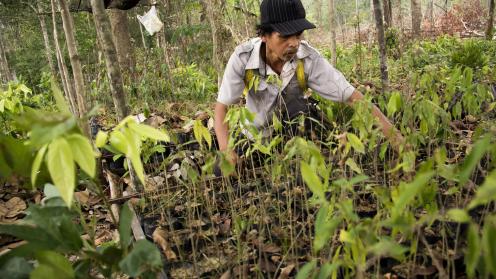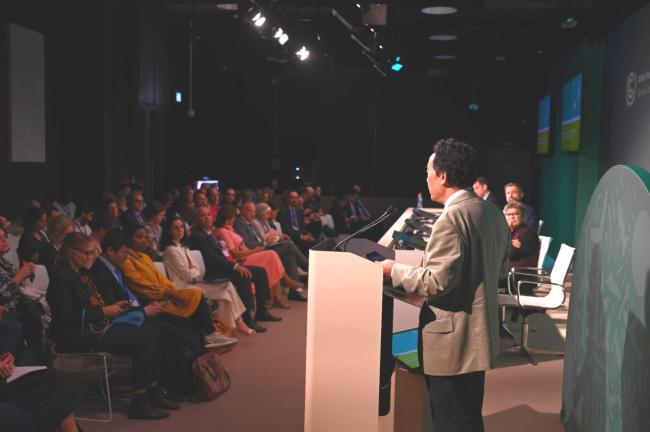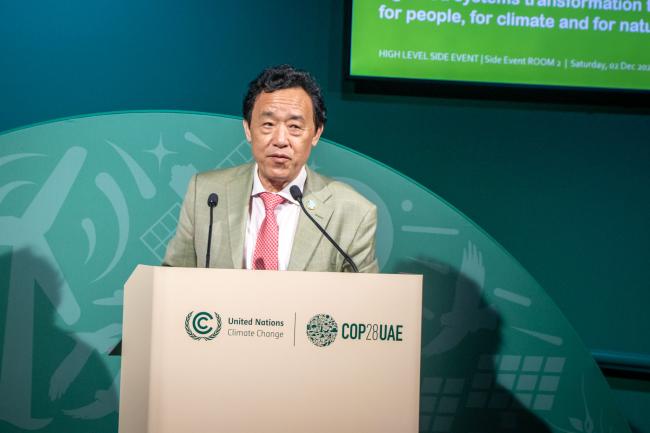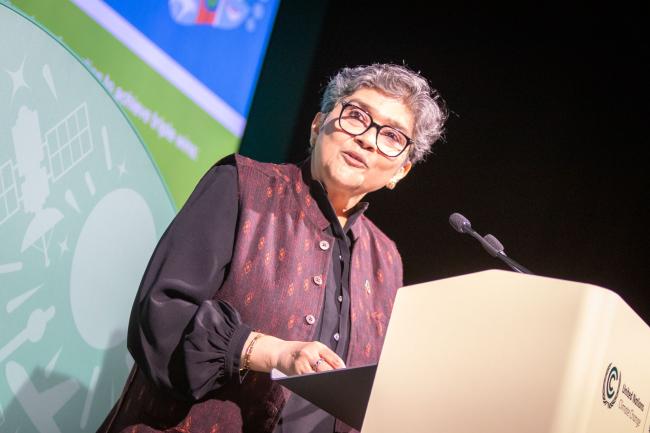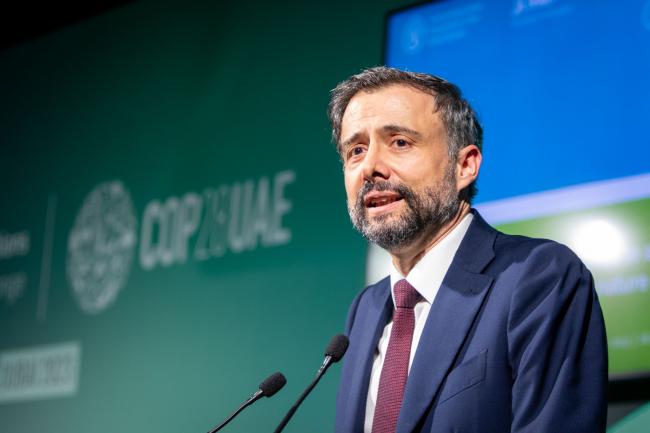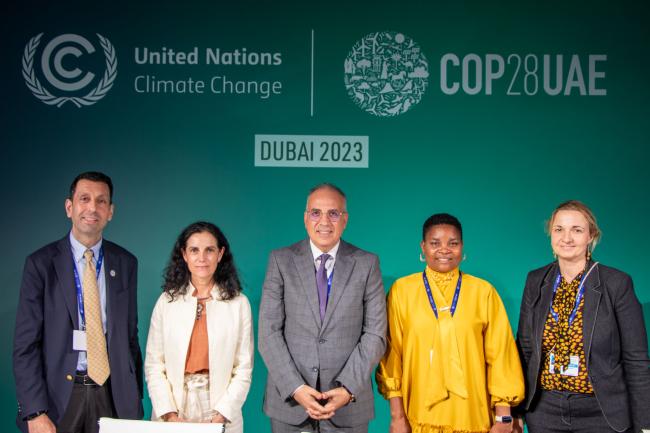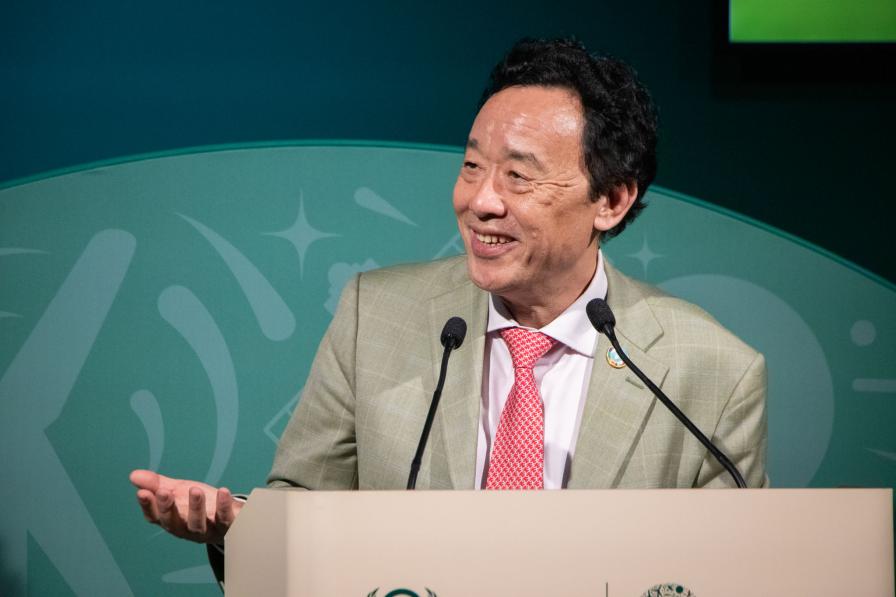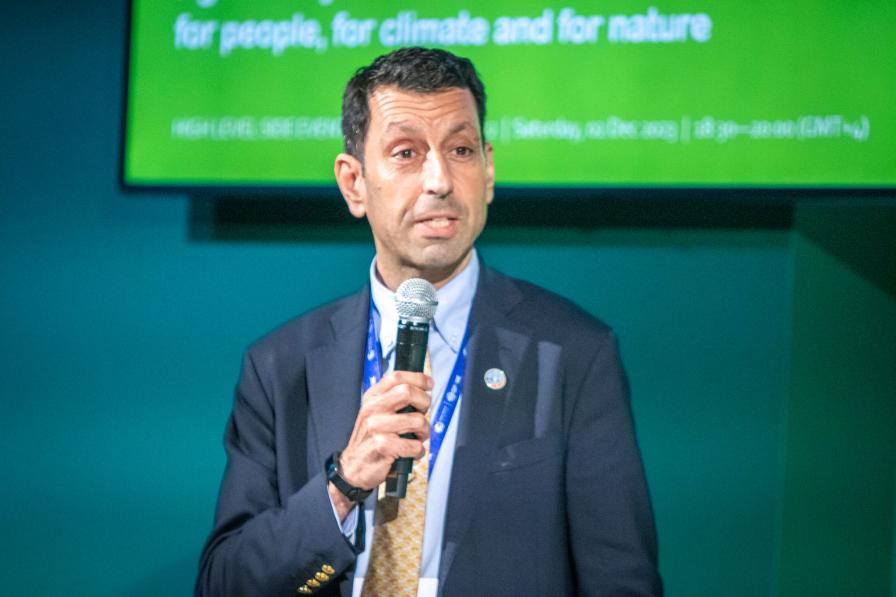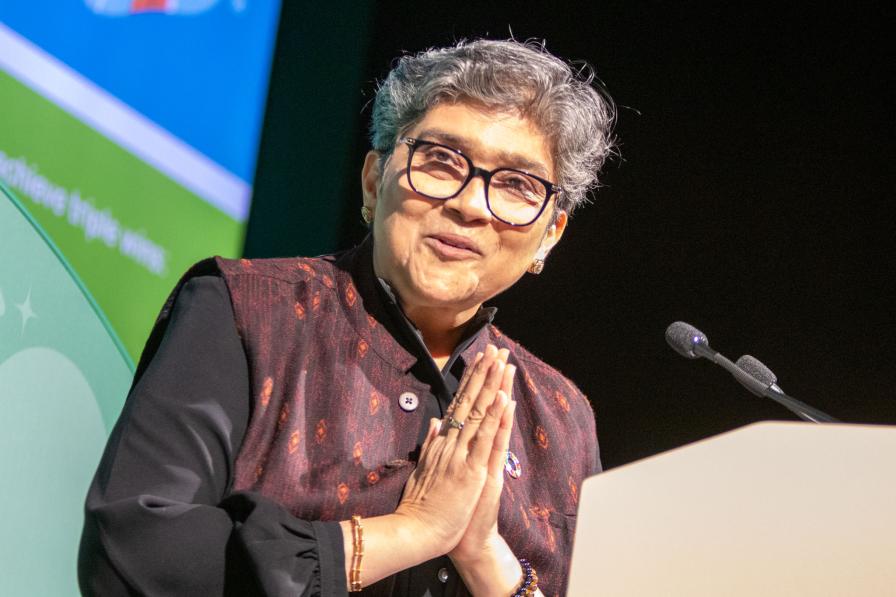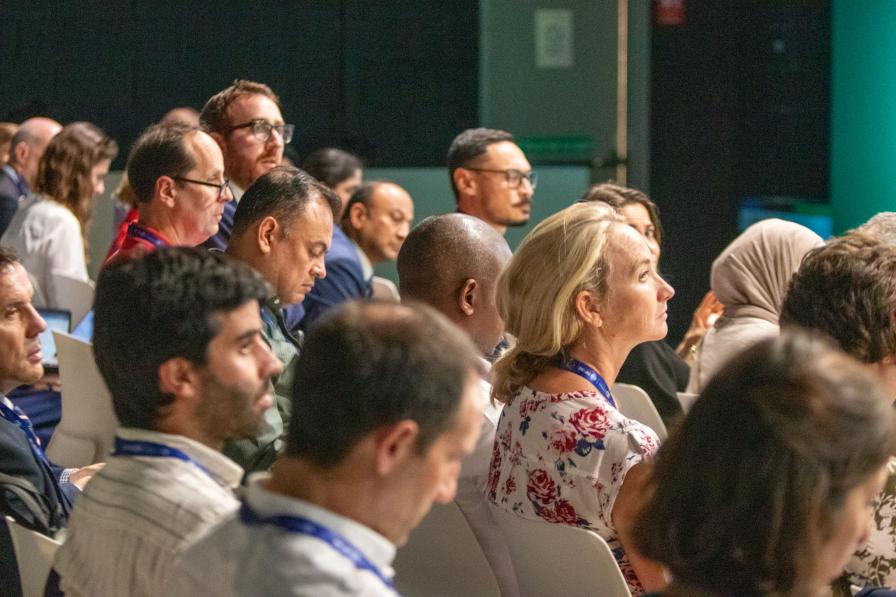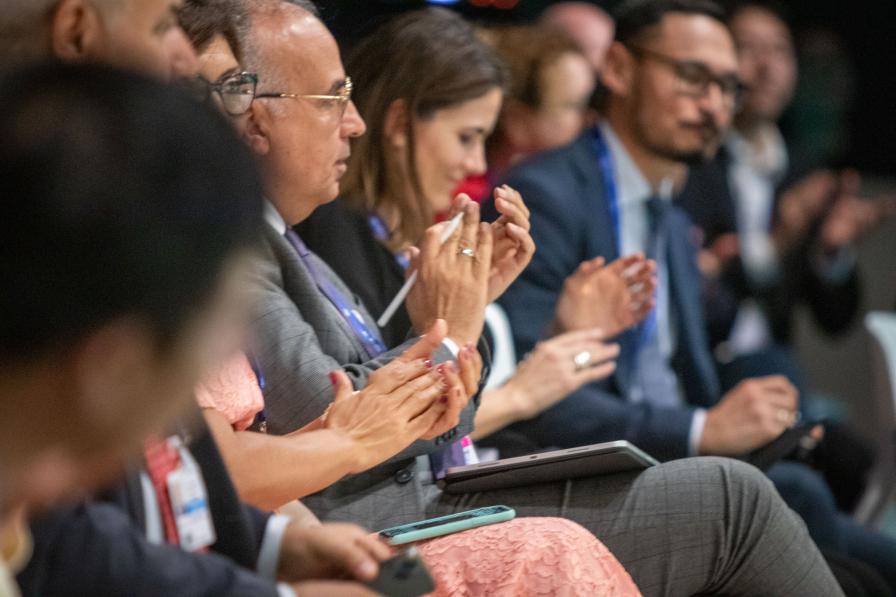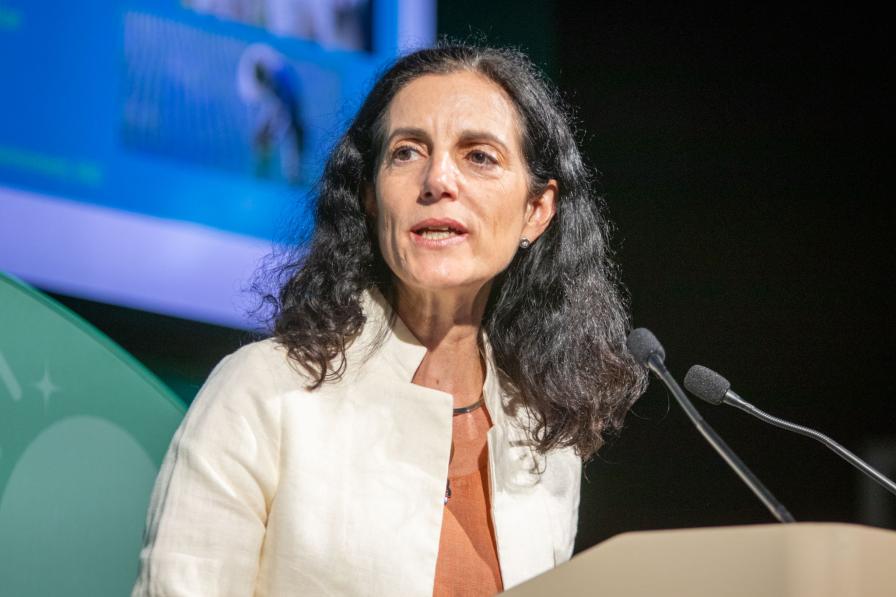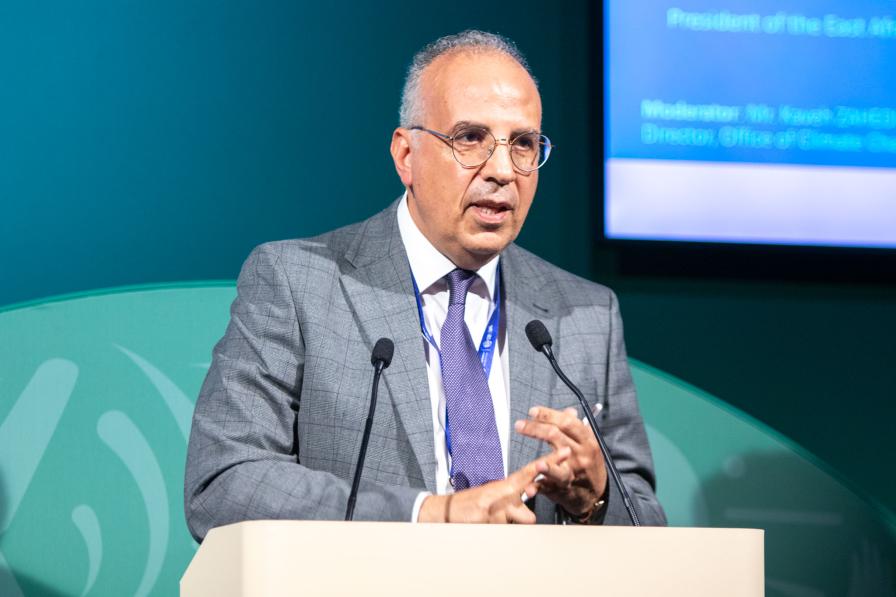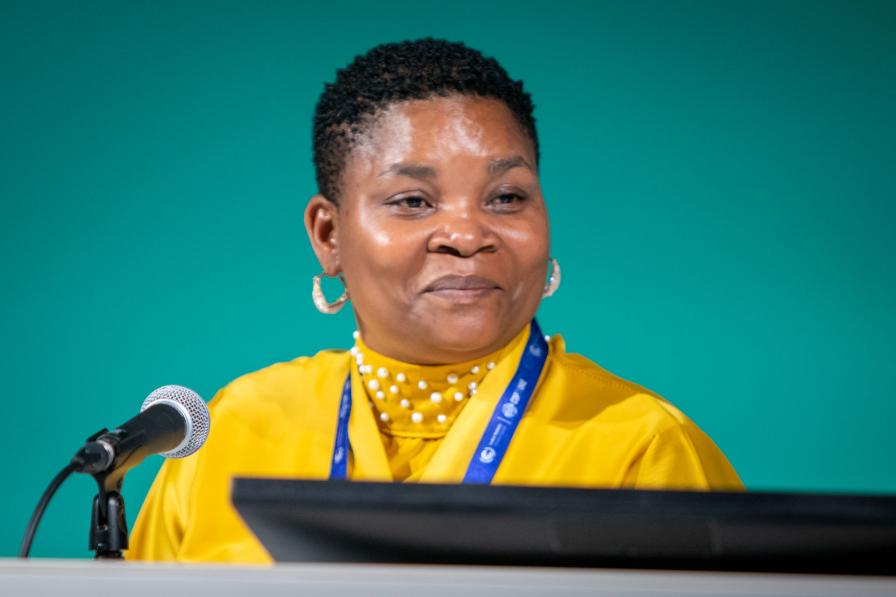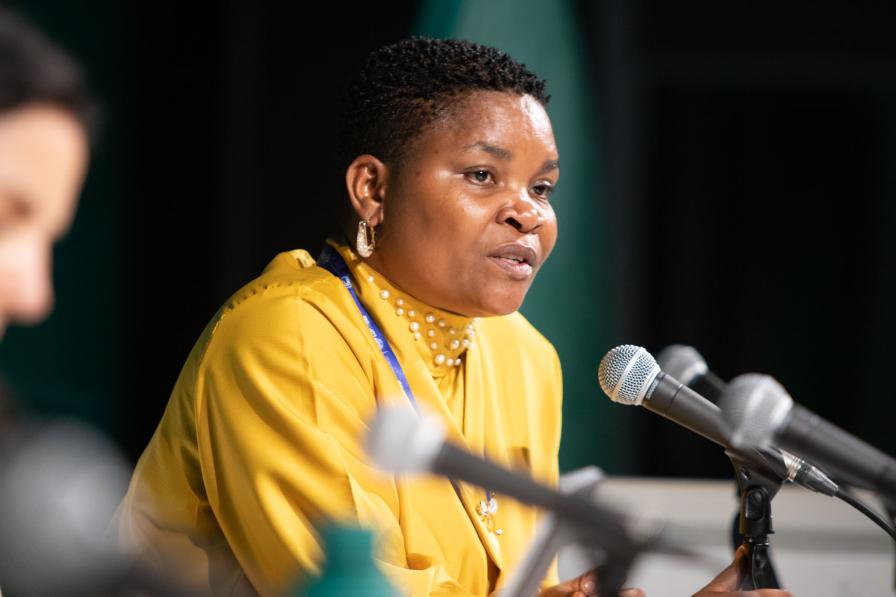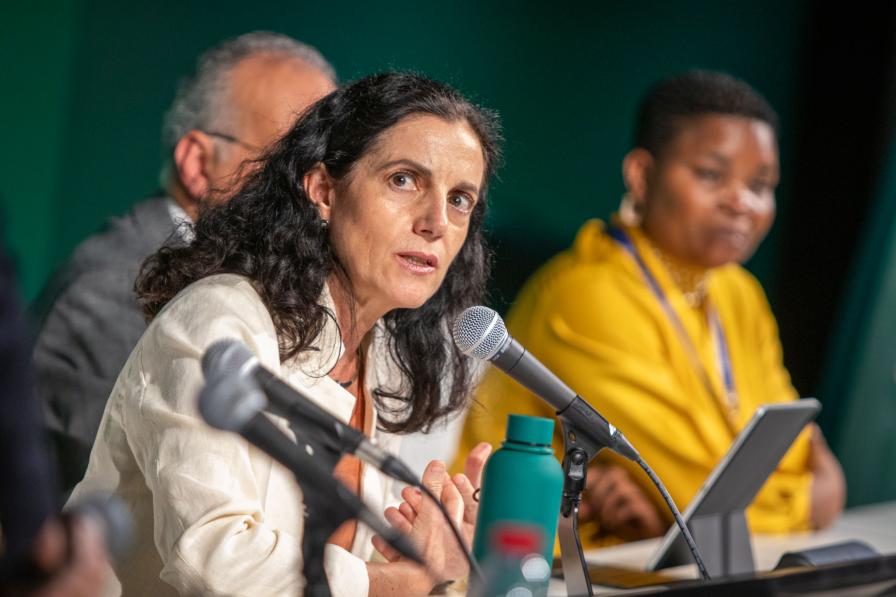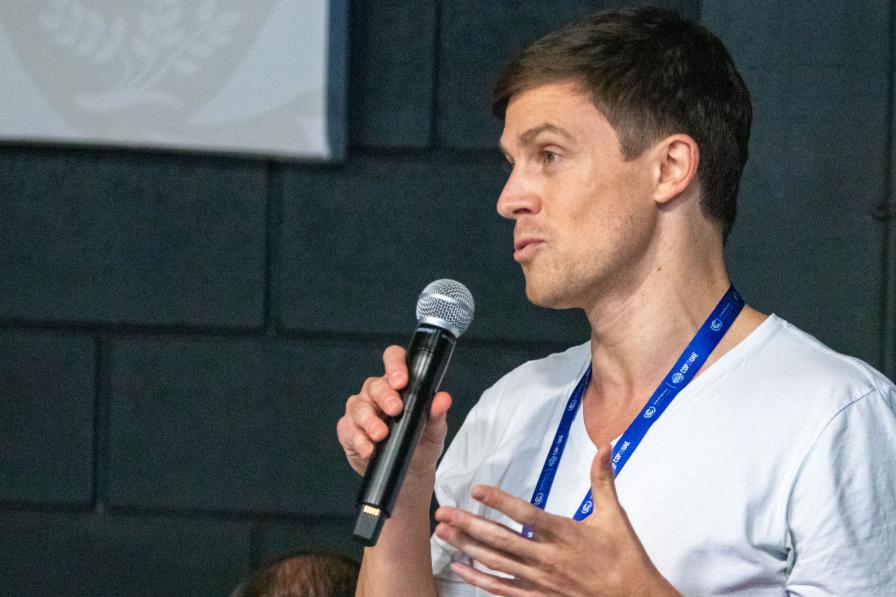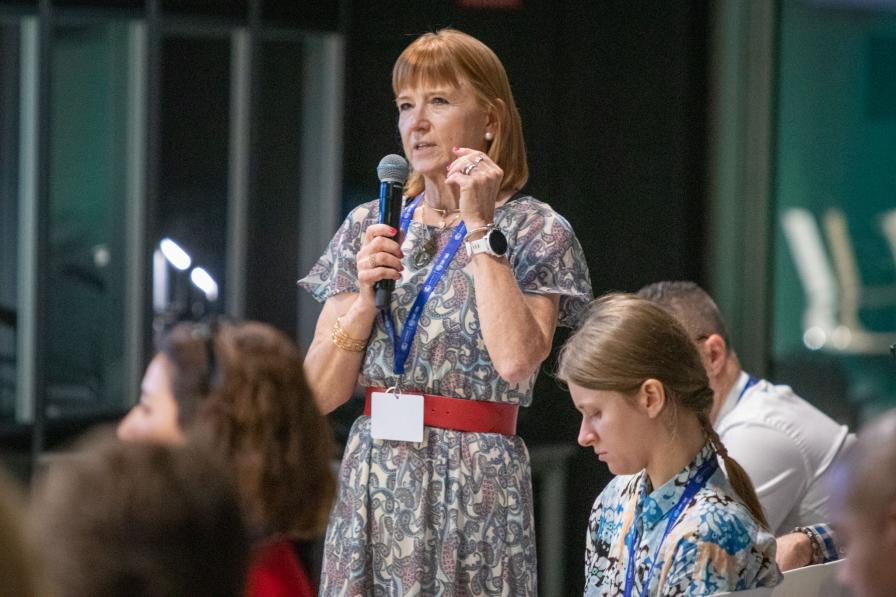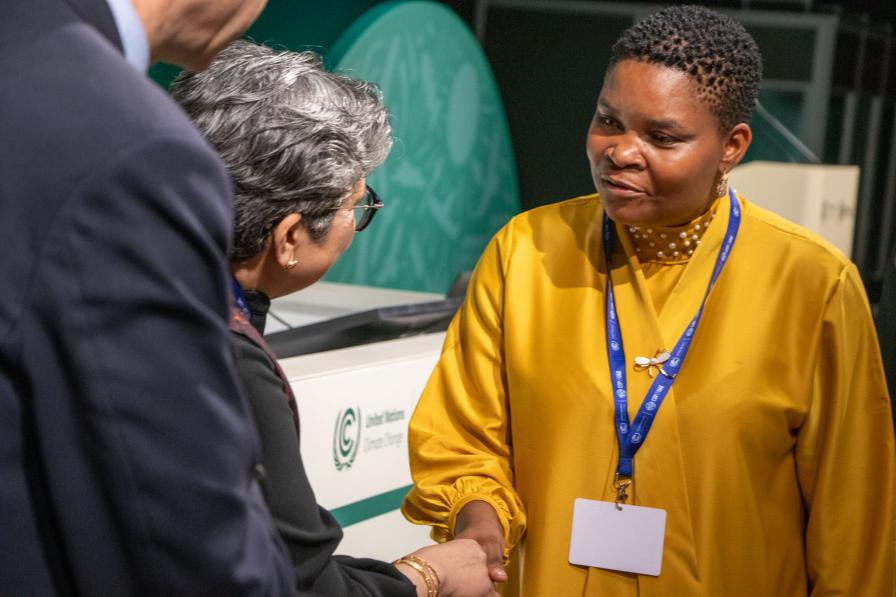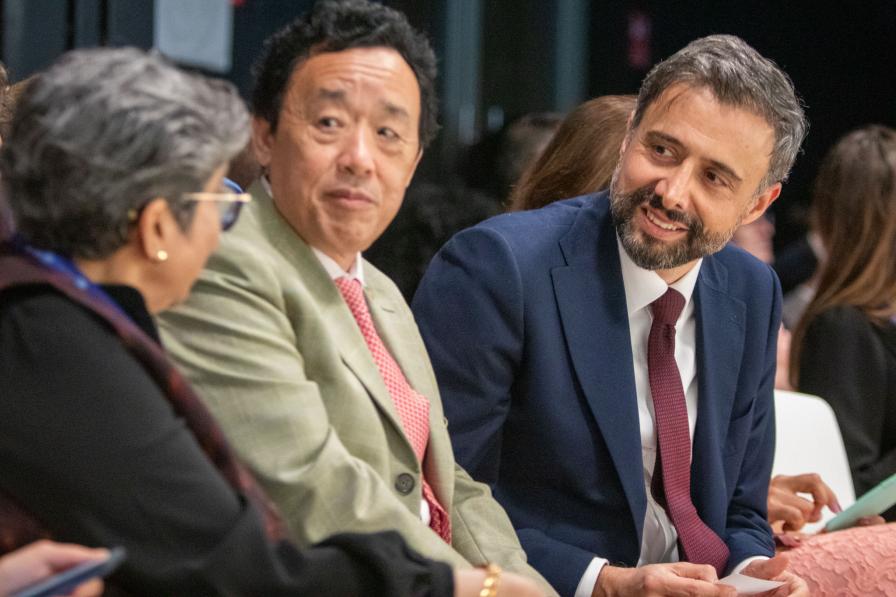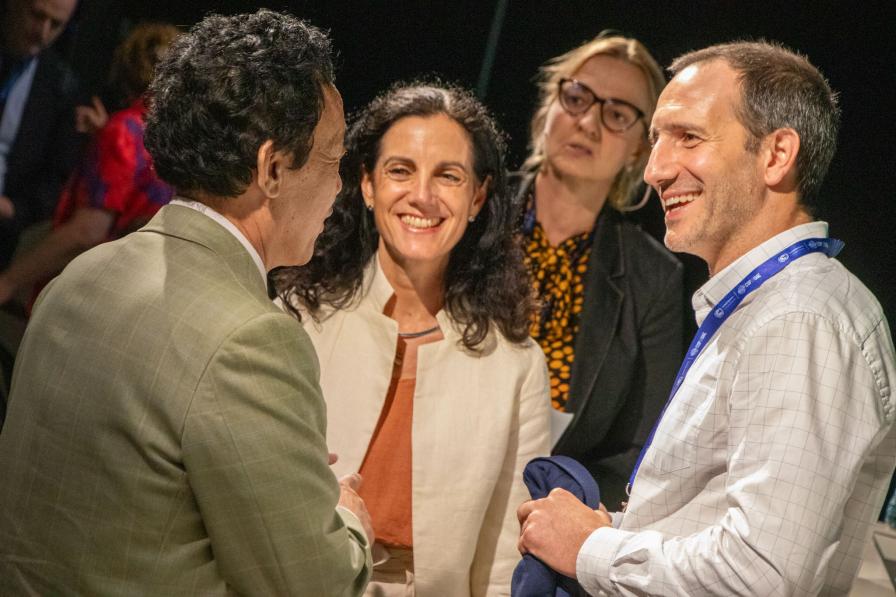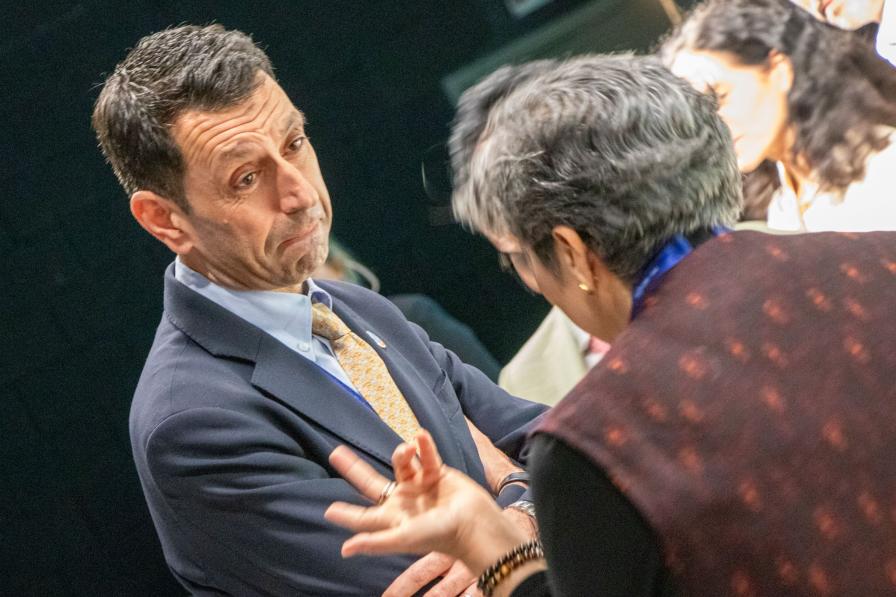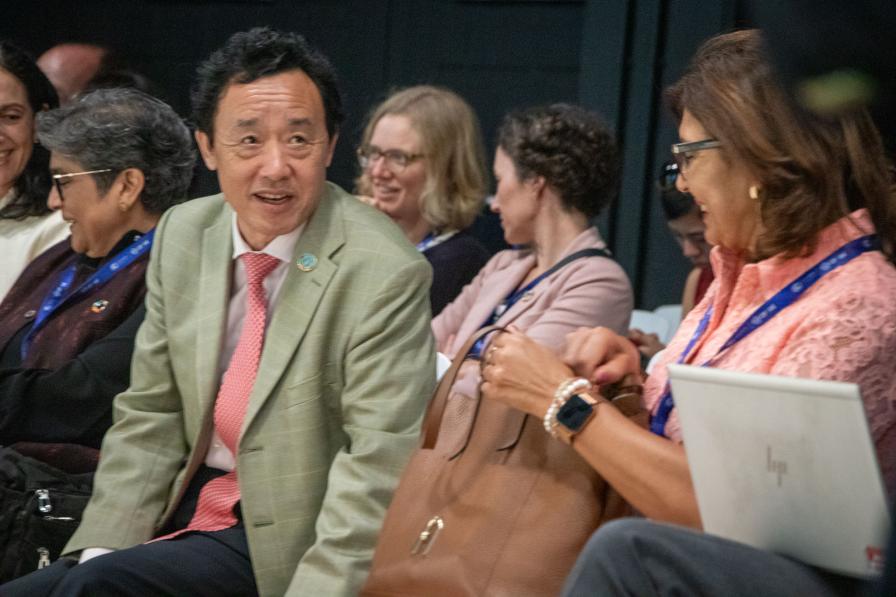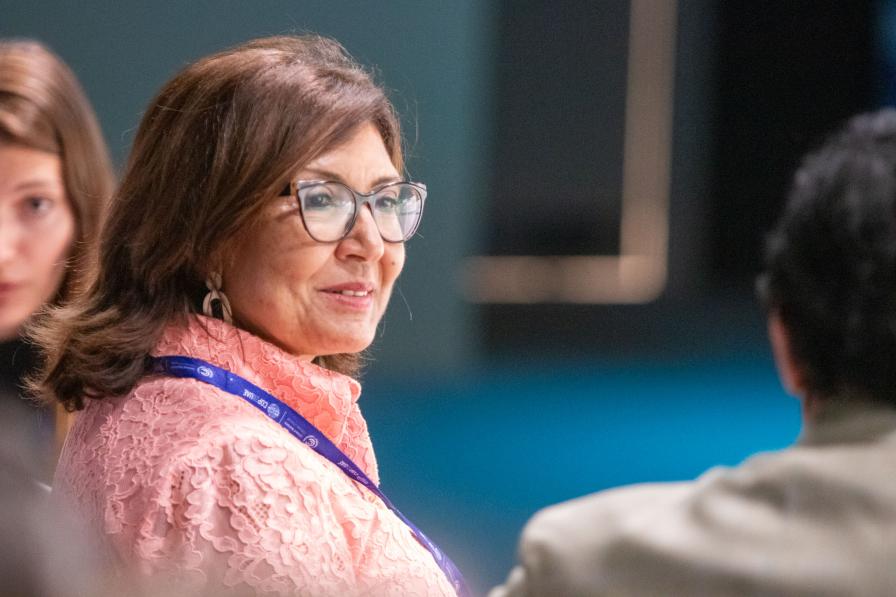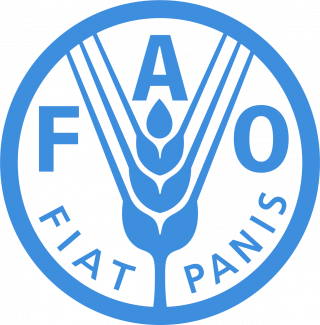Summary
When designed and managed sustainably, agrifood systems have the potential to act as powerful climate change mitigators, transformation of these systems will play a pivotal role in achieving global environmental and sustainability goals.
Agrifood Systems Transformation to Achieve Triple Wins: For People, for Climate and for Nature
Agrifood systems play a pivotal role in achieving climate commitments globally. They can help countries and communities to adapt, build resilience, and mitigate emissions, ensuring food security and nutrition while reversing environmental degradation and its impacts. The solutions range from the sustainable management of land and water, agriculture and forestry, to integrated production systems, energy-smart tools and technologies and more.
This side event, organized by the Food and Agriculture Organization of the UN (FAO), and supported by the International Fund of Agriculture Development (IFAD), put a spotlight on the role of agrifood systems in climate change adaptation and mitigation, protecting and conserving biodiversity, and building inclusive and resilient livelihoods. Panel discussions focused on innovations, policies, and commitments aimed at overcoming obstacles to the implementation of agrifood system solutions through a range of stakeholders from different countries.
Kaveh Zahedi, FAO, welcomed delegates, noting that the event is taking place at a crucial moment when the agriculture agenda has been affirmed as critical for achieving climate commitments. Regarding this, he referred to the recently launched Emirates Declaration on Sustainable Agriculture, Resilient Food Systems, and Climate Action.
In opening remarks, QU Dongyu, Director-General, FAO, said transformation of agrifood systems must help provide nutrition and healthy diets, and a just transition for the family farmers, herders, fishers and fish farmers, forest dwellers, food workers and their families who provide 70-80 percent of the world’s food. The Declaration, he reported, sets out intentions to work collaboratively and quickly to scale up action to reduce the vulnerability of all farmers and producers, promote food security and nutrition, strengthen integrated management of water, and maximize climate and environmental benefits through agrifood systems. He added that more than half the targets of the Kunming-Montreal Global Biodiversity Framework are directly linked to agrifood systems.
In a keynote speech, Rabab Fatima, UN Under Secretary-General and High Representative for the Least Developed Countries (LDCs), Landlocked Developing Countries (LLDCs), and Small Island Developing States (SIDS), presented on the plight of LDCs, LLDCs, and SIDS due to climate change and biodiversity loss. She said these regions should be prioritized, and called for enhanced financial support and investment towards sustainable agricultural practices and climate resilient crops. Finally, she mentioned the need to bring to fruition the 2022-2031 Doha Programme of Action, which calls for, among others, the development of a food stockholding mechanism for LDCs.
In a scene-setting speech, Alvaro Lario, President, International Fund for Agricultural Development (IFAD), referred to the Africa Rural Climate Adaptation Financing Mechanism, just launched at COP 28, as an example of financial mechanisms required to support climate resilience. He said small-scale farmers produce up to 70% of the food in developing countries but receive a tiny fraction of climate finance, noting the need to support them in leading decent and profitable livelihoods.
During the panel discussion, Azucena María Arbeleche, Minister of Economy and Finance, Uruguay, presented innovative financial mechanisms that are enabling her country to maintain livestock productivity while reducing GHGs from the sector. She reported on the Sovereign Sustainability-Linked Bonds, which link her country’s sovereign bond financing strategy to its climate targets under the Paris Agreement as set out in Uruguay’s Nationally Determined Contribution.
Hani Sewilam, Minister of Water Resources and Irrigation, Egypt, emphasized the need to promote water alongside the agriculture agenda at COPs. He said the momentum on these issues should lead to the transformative actions experienced in renewable energy in previous COPs. He lamented that research on water desalination has not borne applicable innovations, and called for low-cost technologies that support small-scale farmers in areas such as rain-fed agriculture.
Elizabeth Nsimadala, President, East African Farmers Federation, said farmers are central to achieving the transformation of food systems. She noted that too many intermediaries are speaking on behalf of farmers, calling for the recognition of farmer’s organizations that span from local to national, regional, and international levels. Nsimadala also emphasized that farmers require a place at the table when discussions on financing agricultural transformation are taking place and called for accountability on resource mobilization.
During the discussion that followed, participants noted, among others, the need to engage governments alongside farmers to achieve on the ground successes in agrisystem transformation. They also stressed the need to ensure resilient seeds reach farmers and to promote technologies for “producing more with less.”
Organizer: FAO
Contact: Julia Wolf | julia.wolf@fao.org
For more information: fao.org
To receive free coverage of global environmental events delivered to your inbox, subscribe to the ENB Update newsletter.
All ENB photos are free to use with attribution. For this COP 28 side event, please use: Photo by IISD/ENB | Matthew TenBruggencate.
